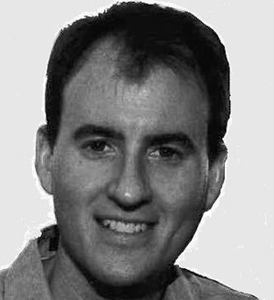ANOTHER VIEW
 “Tea With Hezbollah”
“Tea With Hezbollah”
A new book just out from Ted Dekker and Carl Medearis entitled Tea With Hezbollah takes an unusual approach to the question of how address the problems in the Middle East. Carl, a friend of mine from some time back, and his friend, the bestselling fiction writer Ted Dekker, spend three weeks on a breathtaking journey through the Middle East visiting people and places that few Westerners can go, because of Carl’s amazing ability to win the trust of all sorts of people, even those normally considered enemies. Thus the sub-title of their book is Sitting at the Enemies’ table, Our journey Through the Middle East.
Carl and Ted worked through Carl’s friends who are very connected, to arrange meetings with the head of the Al-Azhar University in Cairo, Egypt, family members of Osama Ben Laden, Hezbollah leaders, Hamas Leaders, a Jewish professor, a Palestinian Christian peacemaker, and finally, a real-live Samaritan, a modern descendent of the main actor in Jesus’ parable “The Good Samaritan.” They chose this cast of characters to visit because as is often said in the Middle East, “Cairo writes Islamic law, Saudi Arabia lives Islamic law, and Beirut fights over it.” They also went with a simple agenda to sit down with the movers and shakers in the Middle East, the ideologues of the Islamic world who don’t always dominate the media, and ask them questions to try and understand their common humanity. They asked the ideological leader of Hezbollah questions like, “what’s your favorite joke, when was the last time you cried, what kind of car do you drive, what common misperceptions do Americans have of Muslims, what common misperceptions do Muslims have of Americans?” The clincher question for each of their interviews was this, “when asked what his most important teaching was, Jesus said to love your neighbor as yourself, he told the story of the Good Samaritan, a man who showed love to his enemy, what do you think about this?” They hoped in their journey to actually find someone who would be a modern-day Good Samaritan, someone who steps out of the prejudices and hostilities to offer kindness and love to someone who is naturally an enemy.
The book gives fascinating insight into not only the current state of affairs in the Middle East, but rich historical background. For example, when visiting southern Lebanon they toured the archeological site of Baalbek, not only one of the oldest religious temple sites in the world, but the location of the three largest single stones every used in a human construction, two weighing about 800 tons and one up to 1200 tons. For comparison, the largest Stonehenge stones weigh only 50 tons. Why and how the builders of Baalbek could construct a wall with such massive stones is still a mystery. Interestingly, the leadership of Hezbollah is still located in the region surrounding this ancient and stunning archeological site.
Over and over in their interviews, with both religious and political leaders and the people they met on the streets, the answers to the question “can we love our enemies” were filled with doubt. People tended to think the teaching is lovely in an ideal sense, but not practical in the real world. They did however discover someone in Israel who came very close to fitting the profile of the Good Samaritan, Sami Awad. Living as a Christian minority Arab in the midst of war-torn Palestine, Sami’s family suffered injury and death. Yet they chose not to hate their enemies. Now he runs The Holy Land Trust, dedicated to bringing peace and reconciliation. Living between the Jews and Muslims, he seeks in a low key way to end hostilities on both sides. He told the story of traveling to Auschwitz in Poland and spending the night in an open grave of someone killed in the gas chambers. It was a small one probably belonging to a child. He is not a Jew, but he wanted to seek to understand their suffering, if but just in a small way, so he could learn to love them more.
Tea With Hezbollah does not end with easy answers. Sami himself says that loving one’s enemy is never easy. Dekker and Medearis don’t offer a political remedy. But they do challenge readers of all backgrounds to see “those people”–Jews or Muslims, Christians or Secular–as humans, in many ways just like us, who can laugh at a joke, who love their children and grandchildren, and who need love and forgiveness. Maybe it won’t end all wars, but it will help build relational bridges that can bring hope to countless individuals.
- WALK IN THE WILD - June 22, 2015
- MY DUCK DYNASTY NEIGHBORS - February 14, 2014
- WHEN THE IRON CURTAIN FELL - December 20, 2013


